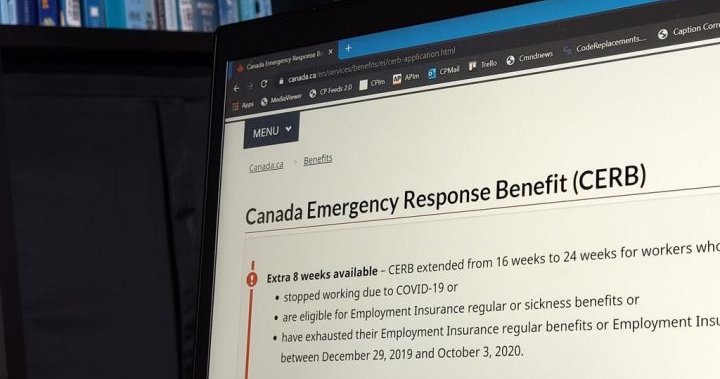
Thousands of low-income CRB recipients saw decline in federal support, documents show
Global News
Federal officials say about 83,000 low-income seniors have lost out on the guaranteed income supplement.
Internal government documents are providing the clearest picture yet of the impact that emergency aid is having on federal support to low-income seniors and families.
Thousands of benefit recipients have seen a decline in the value of payments because they received the Canada Emergency Response Benefit or its successor, the Canada Recovery Benefit, last year.
Documents show low-income families were expected to see the sharpest drops in support through the Canada Child Benefit, and federal officials say about 83,000 low-income seniors have lost out on the guaranteed income supplement.
The documents obtained by The Canadian Press under the access to information law provide a window into the early warnings around how the financial help offered by the pandemic recovery benefits last year now claws back payments relied on by millions of Canadian households.
The reason is because the CERB and a trio of other government recovery benefits – the CRB for unemployed workers, a caregiving benefit for anyone who stayed home to care for a child or loved one, and a sickness benefit for ill workers – were counted as income for the purposes of calculating benefit amounts. As incomes rose, benefit values dropped.
In a May presentation about the impact on child benefit payments, officials at Employment and Social Development Canada wrote that about 15 per cent of aid recipients received the CCB, compared to 12 per cent of the general population.
The presentation estimated that among those expected to see a drop in child benefit amounts, almost three in 10 had total incomes under $20,000 and the value of their benefits would drop more compared to higher-earning recipients.
Meanwhile, the emergency aid provided reduced GIS payments for 183,417 low-income seniors, who on average lost about $3,500 this year, which is less than they would have received in pandemic-related benefits last year because supplement payments are clawed back $1 for every $2 of net income.













